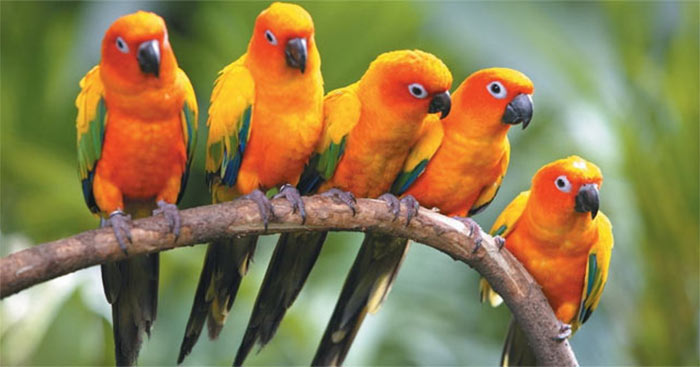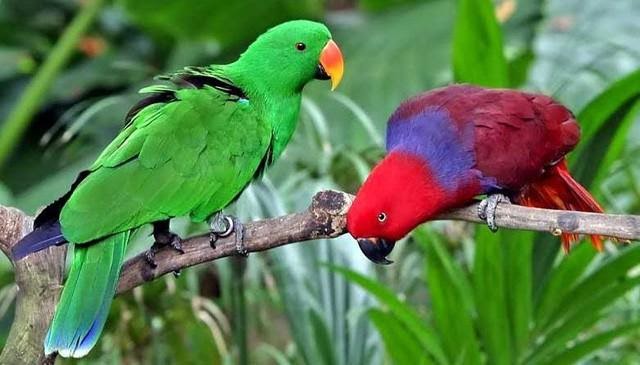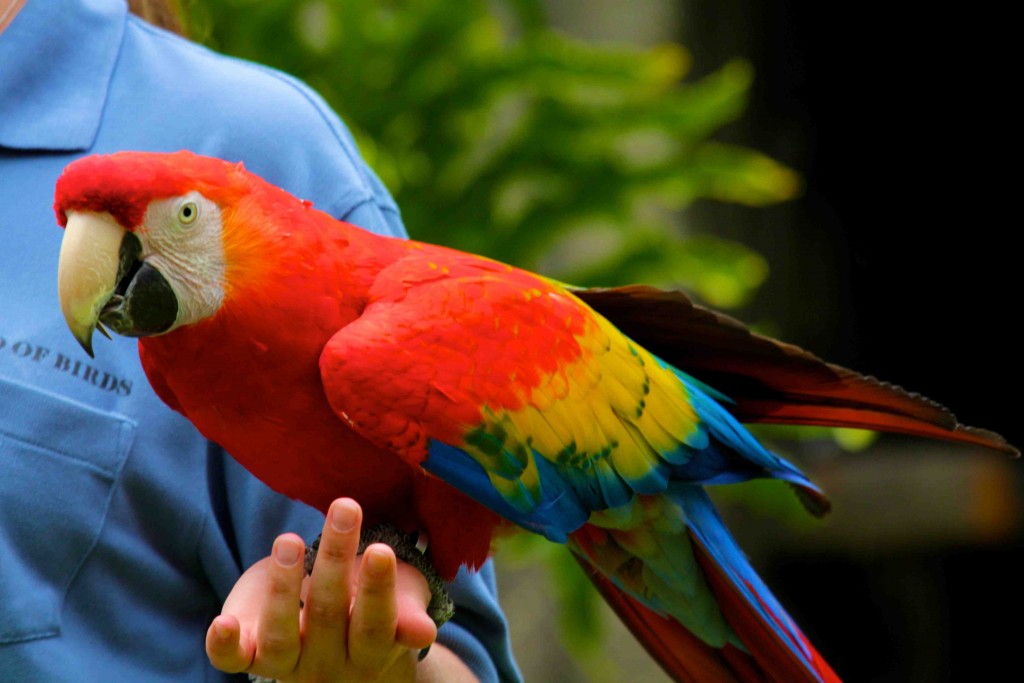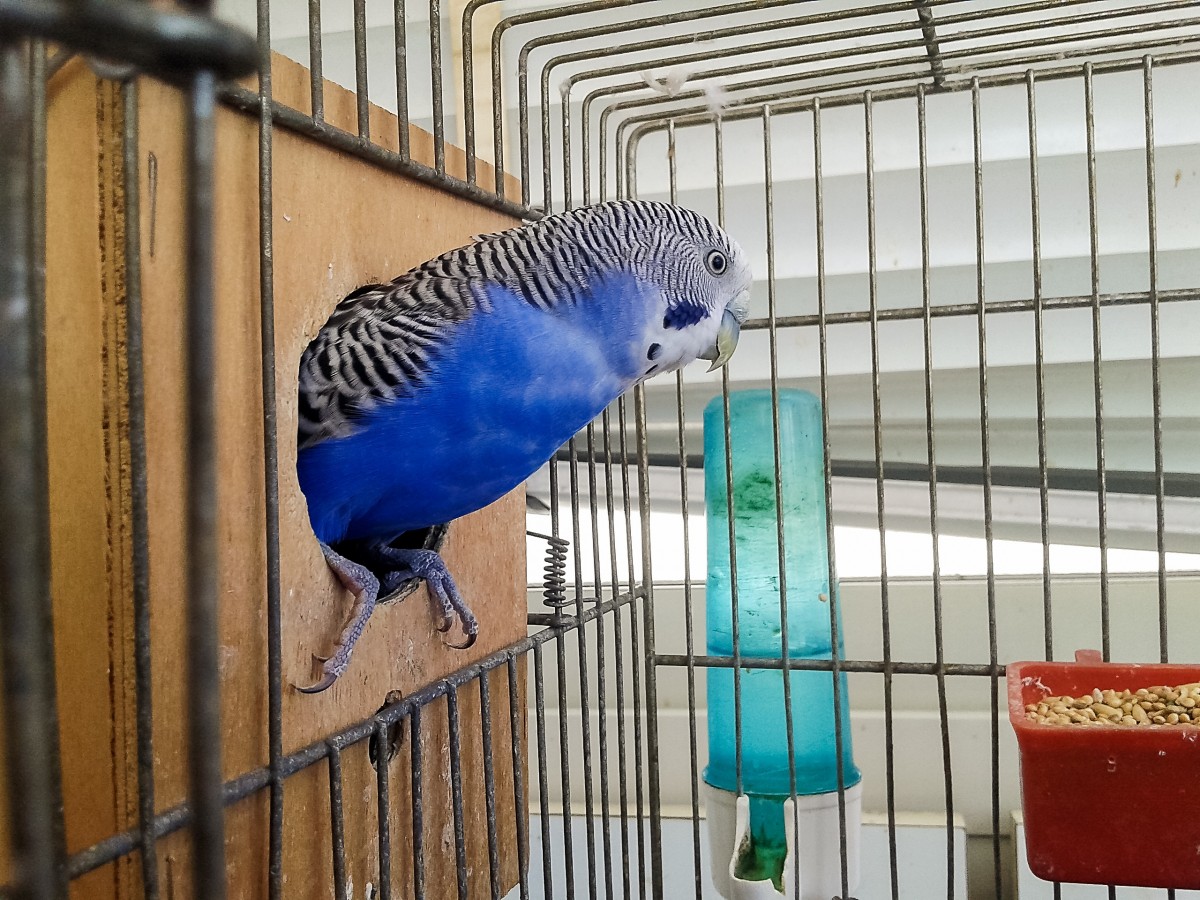Techniques for raising and caring for beautiful and healthy parrots

Parrots are ornamental birds with beautiful, brilliant colors like a beautiful queen. Imitating voices are extremely skilled, so they are preferred by players to the list of the most popular species. If you are an expert in ornamental birds, you will know that raising a parrot is difficult, but teaching a parrot to talk is even more difficult. So what's the secret here? Then chimcanh.net will help you with the most detailed and effective methods of raising and caring for them!
Characteristics of Parrots
Residence
The scientific name of parrots is Psittaciformes. Is a bird in the order Psittaciformes, with nearly 372 species in 86 genera. Mainly lives in warm tropical regions. Parrots are divided into three superfamilies: Psittacoidea, Cacatuoidea and Strigopoidea. Parrots are distributed throughout the tropics, with some species inhabiting the temperate southern hemisphere.
Morphological characteristics

- Parrots usually live in pairs, always together. Once a couple becomes husband and wife, they are never apart.
- They hump their sentiments like doves. Their voices at that time had a different timbre as if they were whispering to each other passionate words of love.
- During the breeding season, their cooing voice is still the same but deeper. And almost have the power to stimulate the growth of the female ovaries greatly.
How to choose a good parrot breed

Select parrots by distinguishing male and female.
- Their external appearance can easily identify their sex when the parrot has fully grown feathers. Parrots that are too young may not be as obvious.
- The upper beak of the male is bright red like the head, the lower beak is dark gray, the bigger it is, the blacker it is.
- The beak of the female parrot is the same above and below, both dark gray in color.
Select parrots by distinguishing young birds from adults.
- When the bird has full wings and can fly, it is quite difficult to distinguish the age. There are two basic factors in all parrot relatives that make it possible to determine whether this bird is an adult or not.
- Eyes: The parrot's pupils shrink with age. Therefore, if you see a parrot with a full black heart full of eyes, it is a young parrot. As they grow older, the black of their eyes shrinks, appearing as a circle of whites on the outside.
- Beak and feet: distinguish natural rough beak and feet due to age from a fungal disease that makes these parts rough.
- Thus, if the bird's beak is smooth and has no cracks, is not rough, the skin of the bird's feet is soft, and there are no raised white horn scales, it is a young parrot. With that feature combined with standard parenting, you will own a large, strong, intelligent parrot.
Parrot bird cage

- The type of cage used for parrots is metal cages. This type is durable, clean, convenient in cleaning bird cages.
- If you only keep 1 bird, a cage with a size of 30cm x 30cm is suitable. Or a round cage with a diameter of 30cm.
- If you have a pair of birds, a larger cage is needed. Because it also allows birds to breed and raise babies in it. 40cm x 40cm rainbow cages or 35cm x 50cm rectangular cages are also very good.
- In the birdcage, in addition to the two must-haves, including water and food, you need a pier for the bird. Should put 2 staggered bridges so that birds can comfortably climb. Accompanied by 1 to 2 small containers for auxiliary food. You hang an extra piece of squid in the birdcage.
- The breeding nests of birds are not too sophisticated, usually made of thin wood. But must be able to withstand the strong beak of the common. The size is about 15cm x 20cm, there is a round hole to make a door for birds.
How to feed Parrots
- Daily in the morning, or afternoon. At a certain convenient hour of the day. Take a slice of carrot, cucumber, or apple, pear, plum… fresh. Holding the bunches at the tips of the fingers, gently reach out to the parrots.
- Just invite them to eat, while saying gentle words of affection. Avoid sudden, loud noises that scare the parrot. When the parrot accepts the food, gently retracts his hand, continues to stand still and says a few words of affection. Although he does not understand the words, his gentle gestures and attitude can be felt very clearly, and this makes him feel secure.
How to bathe a Parrot
- Parrots usually do not have the habit of bathing in water, but are also very clean. So prepare a spray bottle of water mist. Give them a bath by spraying them with water every 2 days in the summer and every time it's sunny in the winter.
Prevention of Typhoid in Parrots
Cause of disease
- Some strains of typhoid bacteria that are common in parrots are: salmonella tiphimurium, salmonella enteritidis will cause typhoid.
- In typhoid, there is also a combination of escherichia coli bacteria available in the digestive tract of parrots. The above bacteria species can survive in humid conditions, lack of sunlight. Bacteria are also present in contaminated water and food.
Manifestations of disease
- Birds often stand moody, eat poorly or stop eating, drink a lot of water, then have loose stools.
- The stool is yellowish white, greenish white, has a fishy smell, sometimes with blood.
Treatment
- One of the following drugs can be used for treatment: Mix 2g of Esb3/liter of water and feed the birds continuously for 3 to 4 days. Use 100mg Oxytetracyclin/kg body weight of birds, the drug can be mixed with water for drinking.
- Mix with food or by intramuscular injection, the drug is used continuously for 3 to 4 days.
- When detecting sick birds, it is necessary to isolate and treat promptly, and also use one of the above drugs to treat birds that have been kept in cages with sick birds, because these birds may have been infected with pathogens.
- Perform cleaning, disinfecting and supplementing with nutrients, minerals and vitamins to increase the bird's resistance.
With the above basic knowledge, you can raise yourself a parrot bird.
- 5 types of smartest parrots in the world that you can choose to keep as pets
- What are the effects of Vitamin E deficiency when raising Parrots?
- Is it easy to raise pet birds?
- What is the best fruit to feed the Crested Bird to keep the Bird Healthy and Singing
- What do land warblers eat? The experience of raising land warblers